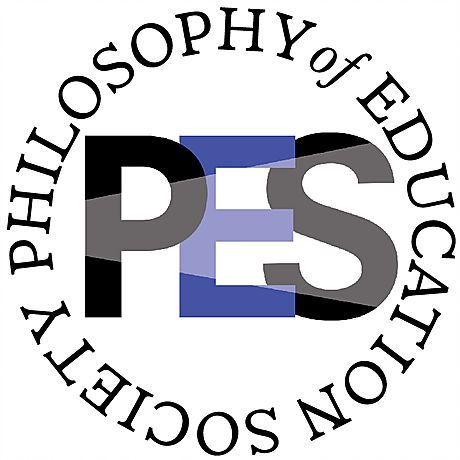PES 2026 Conference
Pittsburgh, PA | March 5 - 9, 2026
-
To Be Rooted: Place, Education, and Ethics
To be rooted is perhaps the most important and least recognized need of the human soul. It is one of the hardest to define. A human being has roots by virtue of his real, active and natural participation in the life of a community which preserves in living shape certain particular treasures of the past and certain particular expectations for the future. [1]
Place, according to Weil, is perceived as an intrinsic need for life. A stable place can support one’s growth, where both individual and social attributes are developed. A place can be understood as one’s belonging in the world, where experiences shape one’s identity, culture, worldview, and sense of security. [2] Yet, in times of global political, humanitarian, and environmental crises, many feel the absence of belonging, familiarity, and a sense of fragility, where one needs to take responsibility for the world. [3] The ethical responsibility for these absences echoes Weil’s essay The Need for Roots, written amidst the horrors of World War 2, in which she recognizes place as a point of departure for advancing ethical life. Places, in this sense, “do not possess single, determinate identities, but are instead constituted out of multiple sets of relations between the entities within those places." [4]
In light of this brief introduction, we invite submissions that explore the possible meanings place holds in educational contexts. What philosophical, wisdom or indigenous traditions can inform a contemporary sense of belonging and finding one’s place in the world as a basis for individual, social, and educational flourishing? What possibilities and dangers does the concept of place present for education? Given current global crises (regional wars, climate migrations, nationalist deportations), what are philosophical responses to the challenges of uprootedness as it impacts education? How can we conceptualize the state of being familiar with and rooted in the known, while simultaneously receptive to the unknown, as is crucial for Bildung? What does place mean in the digital age? What might be the meaning of “ethics of place” in educational contexts? How can educators view the concept of place as a platform to ignite imagination and envision a transformative reality, or a better future?
Registration Details here
Conference Program HereDetails
Deadline for all submissions: November 1, 2025. Submission information and links are available on the conference website. We welcome all topics, and areas of inquiry, for papers or symposia (aka ‘alternative’) sessions, whether they engage the theme or not. Submission possibilities include the following formats:
-
Paper Submissions: PES invites the submission of papers with the maximum length of 4,500 words,
PES invites the submission of papers with the maximum length of 4,500 words, including endnotes. Endnotes are to be used for references only, not supplemental text. Papers must conform to the PES style guidelines (see the Style Guide). Authors should make certain that references to their name, institutional affiliation, or work (e.g., “As I have argued on previous occasions…”) do not identify them to readers, as all submissions are anonymously reviewed. General and concurrent session papers reviewed and accepted by the Program Committee, and invited responses to these papers, are published in Philosophy of Education, the Society’s quarterly journal.
-
Symposia: Examples include sessions organized around a central topic or question, ‘author meets critics’ sessions, performances, interviews, or other artistic and creative sessions. Proposals may not exceed 1,000 words, excluding references, and should identify names of presenters only if essential to the nature of the session type (e.g., ‘author meets critics’ or interview sessions). When the proposed session involves multiple presenters, please specify the contribution of each presenter. Criteria for review of all symposium sessions and works include originality and clarity of motivating question or idea, potential interaction with session attendees, and relevance/importance to educational philosophy and educational policy and practice.
-
Public-facing philosophy of education research or projects: Monday of the conference program will feature public-facing educational philosophy research, projects, or learning sessions. These sessions will be related to the production or use of public-facing research or teaching in our field. Proposals may not exceed 1,000 words, excluding references, and should not identify names of authors or presenters, for blind review. Criteria for review include the clarity of the motivating question or idea related to potential interactions with session attendees, along with its relevance and significance to the advancement of public-facing work in the field.
-
Work-in-Progress Sessions: These sessions group scholars with work-in-progress in an informal collaborative setting. Proposals should detail the question or claim being investigated, relevant sources/resources, likely direction, and mode(s) of analysis. Criteria for review include clarity and significance of the question/claim, suitability of sources/resources, suitability of mode(s) of analysis, and potential for thinking anew about issues in the field of educational philosophy.
[1] Simone Weil, The Need for Roots: Prelude to a Declaration of Duties toward Mankind (London: Routledge & Kegan Paul, 1952), p. 43.
[2] This understanding of place resonates with phenomenological works on place by Heidegger, Marleau-Ponty, Bachelard, and Lefebvre.[3] See Morten Timmermann Korsgaard, Line Hilt, Merete Wiberg, and Mariann Solberg, “Bildung and the Significance of Place: An Overview,” Journal of Philosophy of Education 58, 5 (2024): 599–605. https://doi.org/10.1093/jopedu/qhae072
[4] Jeff Malpas, “Is there an Ethics of Place?,” Localities, 2 (2012): 26.
